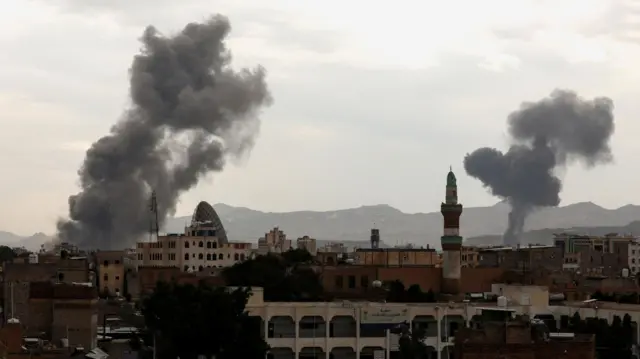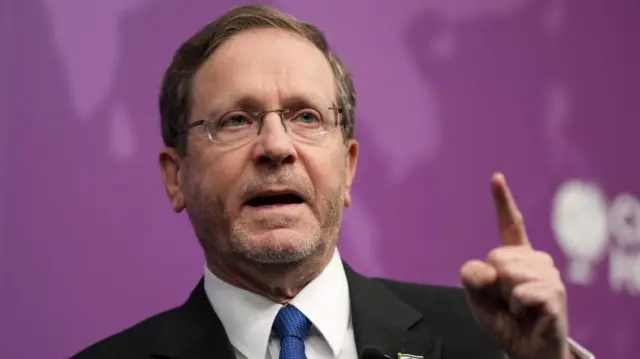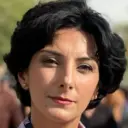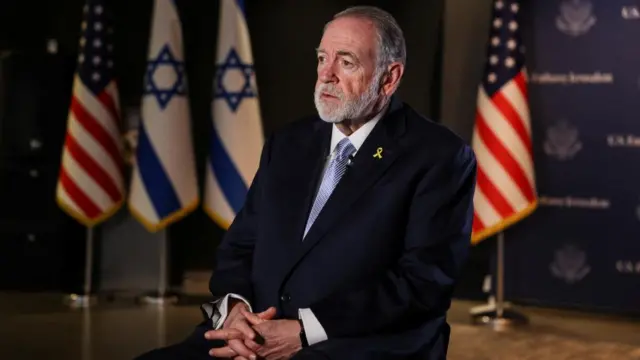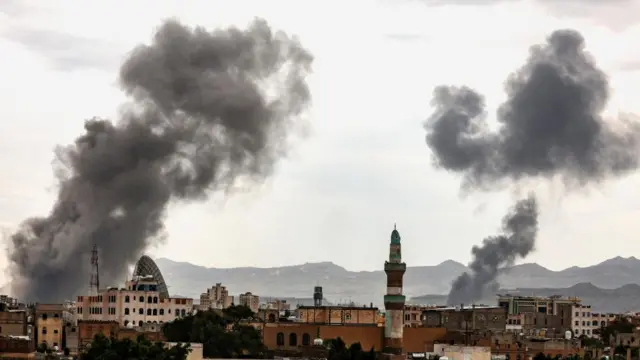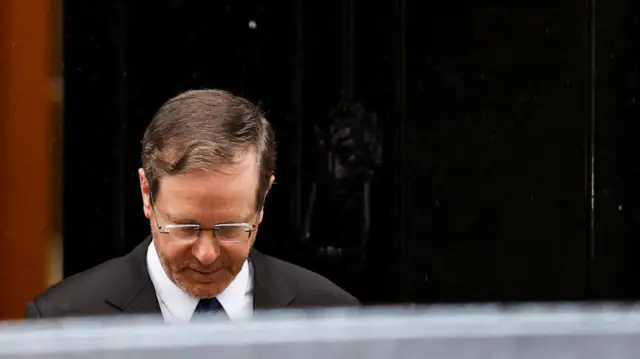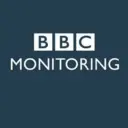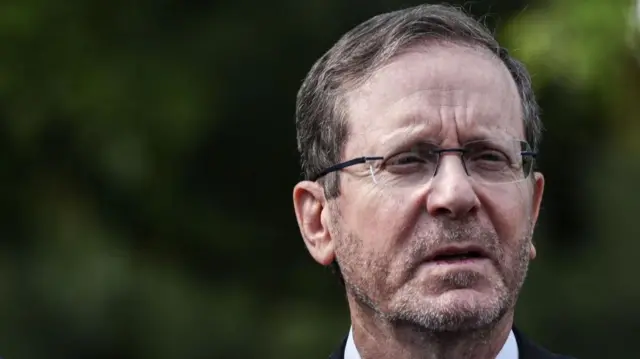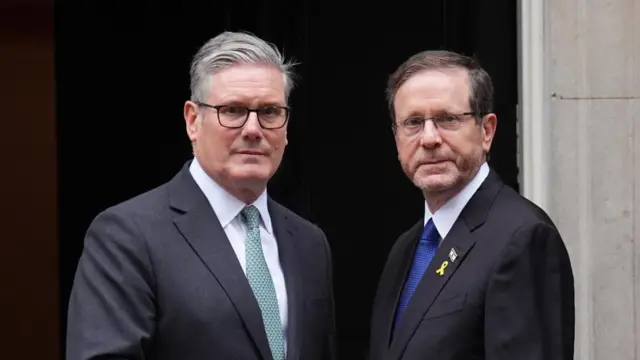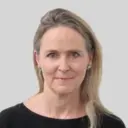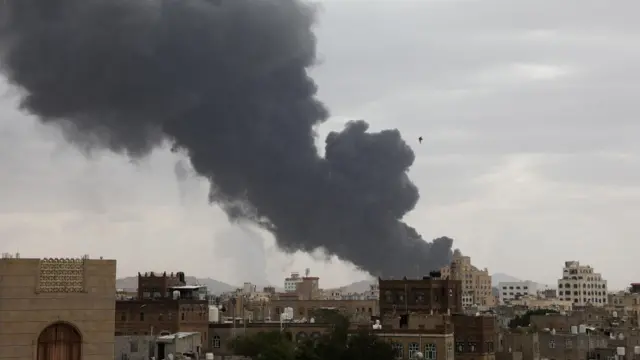Israel's relationship with Qatar uncertain as it carries out strikes on Yemenpublished at 19:49 BST 10 September
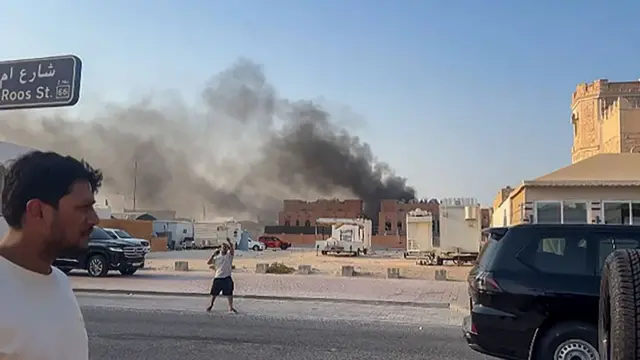 Image source, Getty Images
Image source, Getty ImagesAFPTV footage shows smoke billowing after Tuesday's explosions in Qatar's capital Doha
It's been over 24 hours since Israel carried out strikes on Qatar's capital Doha, saying it had targeted senior Hamas leaders.
Reactions have continued coming in throughout the day, with the UN Security Council postponing its meeting until tomorrow so that the prime minister of Qatar can take part.
Qatar's government is looking to hold Israeli Prime Minister Benjamin Netanyahu responsible for breaking international law with the strikes, but Netanyahu has insisted Israel was "fully justified" because it targeted Hamas leaders who organised the 7 October 2023 attack.
The White House's ambassador to Israel, Mike Huckabee, earlier said "we simply don't know" what impact the strikes would have on ceasefire talks to end the war in Gaza.
Today, Israel carried out new strikes on Yemen, saying its air force had hit "military camps" and had targeted "the headquarters of the Houthi military propaganda department, and a fuel storage site".
The country's Houthi-run health ministry says 35 people were killed and another 131 injured in the attack, according to Reuters and AFP news agencies.
And earlier, UK Prime Minister Keir Starmer met Israeli President Isaac Herzog earlier in what Herzog described as a "frank" and tough" discussion about the situation in Gaza and the Doha strikes. We haven't yet had a statement from Starmer following the talks.
We're ending our live coverage now but you can read more about what red lines now remain for Israel in its pursuit of Hamas.
